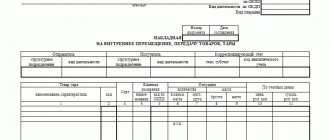Real estate transactions. We carry it out competently
(Beginning. To be continued in the next issue)
Real estate transactions are a multifaceted process that raises many questions from both sellers and buyers. Issues from many branches of law are intertwined here: civil, family, land, tax, legislation on state registration of real estate and legislation on guardianship and trusteeship. Let's try to answer some of them.
What real estate transactions are subject to mandatory notarization?
At the request of the parties, any transaction for the alienation of real estate can be notarized, but the legislator has clearly defined the types of transactions that are subject to mandatory notarization:
•transactions related to the disposal of real estate under guardianship conditions, as well as transactions for the alienation of real estate belonging to a minor citizen or a citizen recognized as having limited legal capacity;
•transactions on the alienation of shares in the right of common ownership of real estate, including the alienation of a real estate object simultaneously by all participants in shared ownership under one transaction.
That is, during the alienation (sale, donation, exchange) by the owner of a share of real estate (apartment, residential building, land plot, etc.) to another co-owner or third party, as well as during the alienation to a third party of an entire property registered in common shared ownership several persons, notarization of the agreement is required.
Are transactions involving jointly owned real estate subject to notarization?
Property owned by two or more persons belongs to them under the right of common ownership. The legislation provides for two types of common property – shared and joint property. If the property is owned by two or more persons without defining shares, then it is joint property, and if shares are established, then it is shared ownership.
Thus, if the property is owned by joint ownership and is alienated in full, then such a transaction is not subject to mandatory notarization.
What legal requirements must be met when alienating a share of real estate to an outsider?
A contract for the sale and purchase of a share in the ownership of a real estate property to an outsider is subject to mandatory notarization. Such a transaction is carried out subject to the requirements of Article 250 of the Civil Code of the Russian Federation, according to which, when selling a share in the right of common ownership to an outsider, the remaining participants in shared ownership have a pre-emptive right to purchase the share being sold at the price for which it is sold and on other equal conditions.
The seller of a share is obliged to notify in writing the other participants in shared ownership of his intention to sell his share to an outsider, indicating the price and other conditions under which he sells it. If the remaining participants in shared ownership refuse to purchase or do not acquire the sold share in the ownership of real estate within a month from the date of notification, the seller has the right to sell his share to any person.
If the notary establishes that the seller of the share has submitted documents confirming the refusal of the remaining participants in shared ownership to purchase the share, the transaction can be completed before the expiration of the period established by law.
Is an agreement on the alienation of real estate belonging to a child subject to notarization?
Transactions related to the disposal of real estate owned by a minor citizen are subject to mandatory notarization.
Such transactions are carried out only with the prior permission of the guardianship and trusteeship authorities to complete the transaction, as well as with the mandatory fulfillment by the legal representatives of the child (parents, guardians) of the conditions under which the guardianship and trusteeship authorities issued such consent.
For example, the guardianship and trusteeship authorities issued a resolution on preliminary permission to complete a transaction - the sale of an apartment belonging to a minor child, with the condition that another apartment be registered as the child’s property or with the condition that the funds due to the child from the transaction be credited to a bank account opened in the child’s name.
These measures are aimed at protecting the property rights and legitimate interests of minor citizens.
Which notary should I contact to certify a real estate purchase and sale agreement?
According to the amendments made to the Fundamentals of the legislation of the Russian Federation on notaries, certification of contracts for the alienation of real estate objects is carried out by a notary operating in any of the notarial districts located within the constituent entity of the Russian Federation on the territory of which the specified property is located.
This means that to certify a contract for the purchase and sale of real estate located in any locality in the Khabarovsk Territory, you can contact any notary in the Khabarovsk Territory. For example, a notary of the city of Komsomolsk-on-Amur has the right to certify a contract for the sale and purchase of an apartment located in the village of Sosnovka, Khabarovsk district, Khabarovsk Territory.
What responsibility does a notary bear when certifying a real estate purchase and sale agreement?
The notary bears full property liability for damage caused to the citizen’s property through his fault. In accordance with the Fundamentals of the legislation of the Russian Federation on notaries, a notary certifying contracts for the disposal of real estate is obliged to conclude a civil liability agreement.
Damage caused to a citizen’s property is compensated, first of all, through insurance compensation under a notary’s civil liability insurance contract. If this insurance compensation is not enough, the damage will be compensated from collective insurance funds by the regional notary chamber. If the first two insurance indemnities are not enough, then the damage will be compensated from the notary’s personal property. The fourth level of “insurance” protection is the compensation fund of the Federal Notary Chamber.
To what extent will a notary be compensated for damages under a real estate purchase and sale agreement if it is declared invalid?
When determining the amount of damage caused by the actions or inaction of a notary associated with the application of the consequences of the invalidity of a transaction, the subject of which was subject to assessment, the total amount of liability of the notary in connection with the recognition of the transaction as invalid cannot exceed the total value of the subject of assessment given to him by its participants (parties).
This means that if the parties indicate in the contract that the price of the property is clearly underestimated and the contract is declared invalid, the amount of insurance compensation will be determined based on the value indicated by the parties in the sales contract.
What documents must be provided to a notary to certify contracts for the alienation of real estate?
The legislation does not provide an exhaustive list for concluding contracts, but, taking into account current practice, in order to protect the rights and legitimate interests of citizens, for the purity and transparency of the transaction, the notary must be provided with:
•identity documents of the parties (passport, birth certificate);
•documents confirming the powers of representatives (power of attorney, documents confirming the rights of legal representatives (birth certificate), wards (resolution of the department of guardianship and trusteeship) and others);
•title documents (agreement on the transfer of an apartment into the ownership of citizens, a contract of purchase and sale, exchange, gift, certificate of inheritance, agreement of participation in shared construction, etc.);
•certificate of state registration of rights or an extract certifying the state registration of rights;
•permission from the guardianship and trusteeship authorities (in case the transaction affects the interests of minor children and persons recognized by the court as incompetent or partially capable);
•applications from co-owners to waive the right of pre-emption to purchase a share of real estate;
•certificate of absence of registered persons and arrears in payments.
For each transaction, the issue of the need for certain documents is decided individually.
The notary independently electronically requests the information contained in the Unified State Register of Real Estate, necessary to certify the agreement.
YULIA SITNIKOVA
, NOTARY OF THE CITY OF KHABAROVSK
(Continued in the next issue)
Source of publication: information monthly “The Right Decision” issue No. 4 (174) release date of 04/20/2017.
The article was posted on the basis of an agreement dated October 20, 2016, concluded with the founder and publisher of the information monthly “Vernoe Reshenie” LLC “.





